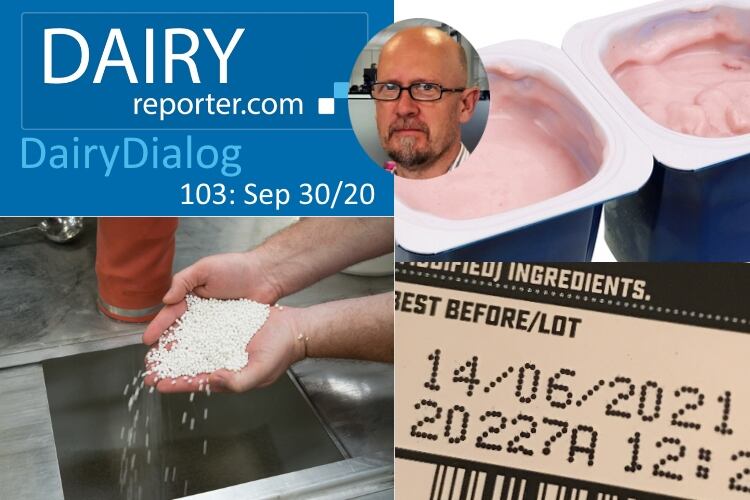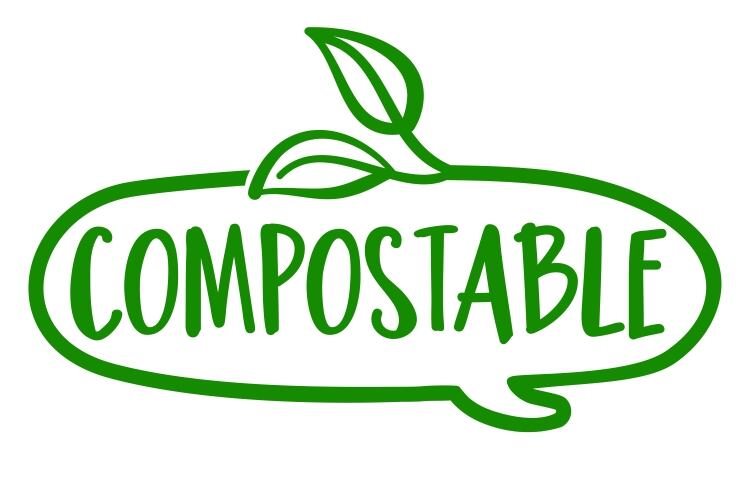We have conversations with Peter Thoeysen, director, commercial development – dairy bioprotection, Chr. Hansen; Phil Van Trump, chief technology officer at Danimer Scientific and Tom Bowden, chief operation officer at Plastic Suppliers Inc (PSI); and Realco CEO George Blackman and Laurent Delhalle, senior scientist at the Department for Food Science of the University of Liège in Belgium.
And we also have our weekly look at the global dairy markets with Liam Fenton from StoneX.
Chr. Hansen - reducing food waste using nature's resources
Characterized by high turnover, fragile supply chains and relatively short shelf lives, the consumption of dairy products in developed markets is a significant contributor to global food waste and losses. According to Danish-headquartered Chr. Hansen, up to 17% of all yogurt is wasted every year in the EU, which equates to a total of 1.5m tons of yogurt.
Delay spoilage with food cultures
Chr. Hansen’s food cultures can delay spoilage in fermented dairy products like yogurt, which can potentially reduce yogurt waste in the EU by up to 440,000 tons.
The company said an independent consumer study carried out in Germany with a research organization explored how extending shelf life affects consumer acceptance. Blind sensory tests showed no difference in consumers’ liking a yogurt with standard shelf life and one with seven days' additional shelf life.
The study also showed consumer purchase intention was influenced positively and even favored the yogurt with longer shelf life if consumers were presented with information about the food waste reduction potential.
Chr. Hansen said it is committed to reducing yogurt waste by 1.2m tons by 2022.
Realco extends expiration date of food products
The so-called use-by date (UBD) has far-reaching implications if we consider that, in Europe alone, 88m tons of food end up in the trash each year at a cost of €143bn.
However, Belgian biotech company Realco says it will now be possible to extend the UBD by up to 100%.
After two years of collaborative research, financed by the Walloon Region through funding provided by the DGO6 (the Walloon Research and Technologies Portal), partners such as the University of Liège (ULiège) and Genalyse Partner have backed up these scientific findings.
The “Biofilm Expert” project analyzed the impact of various cleaning protocols, such as regular enzymatic cleaning, on the quality and, thus, the shelf life, of food products in the highly sensitive sectors of ready-made meals, community kitchens, cheese production, cutting plants and butcher shops.
“Our original hypothesis was relatively simple: a facility’s microbiological quality is correlated to the quality of the end product. If production is contaminated with altering bacteria, these bacteria can contaminate the food, causing it to spoil faster,” Laurent Delhalle, senior scientist at the Department for Food Science of the University of Liège, said.
“So, what do we need to do to reduce the risks of microbiological contamination all along the production chain to a minimum? We compared the results of a cleaning protocol based on traditional chemistry with those of enzymatic treatments at different frequencies.”
The unique feature of enzyme-based detergents is that they attack biofilms. Biofilms are the natural armour that protects 99% of bacteria, making them up to 1,000 times more resistant to traditional cleaning and disinfection agents and to other external stress factors such as temperature, chemical agents and mechanical force.
When these ‘nests’ of bacteria come into contact with food they proliferate freely and can even become pathogenic. Listeria, Salmonella, E. coli, etc., which are all as serious as they are unpredictable, are only some of the culprits that spring to mind. As enzymes break down the membrane of these biofilms, thorough disinfection is achieved and with a cleaner infrastructure you automatically reduce the risk of food becoming contaminated.
“Rigorous sampling has allowed us to scientifically prove that the elimination of biofilms on surfaces and the tools used during the production process enhances the quality of food products and extends their shelf life,” Sébastien Fastrez, R&D director at Realco said.
“In the concrete case of fresh burgers, where the production chain was regularly and preventively treated with Realco enzymatic solutions, shelf life was extended from 11 to 24 days. “
The findings of the research project have been published in the Swiss microbiology journal Frontiers.
“In the face of many environmental and health challenges, reducing food waste and the pressure on industry is an absolute must,” George Blackman, CEO of Realco, said.
“By significantly improving the quality, and therefore the shelf life of products in the food processing sector and commercial kitchens, we have managed to prove something that no chemical cleaning solution has been able to do.”
Realco develops, manufactures and distributes enzyme-based hygiene solutions and processes. It works in the field of enzymatic hygiene and decontamination, providing economic and ecological solutions for industries including the food industry.
Danimer Scientific and PSI to create bio-based, home compostable film packaging
Danimer Scientific, a developer and manufacturer of biodegradable materials, and Plastic Suppliers, Inc. (PSI), a global manufacturer of biopolymer EarthFirst PLA barrier and non-barrier sealant films, have partnered on the creation of bio-based, home compostable films.
PSI will use material supplied by Danimer Scientific to produce packaging films that will reliably degrade without leaving behind harmful microplastics.
These films will contain Danimer Scientific's proprietary biopolymer, Nodax polyhydroxyalkanoate (PHA). Tested by University of Georgia (UGA) researchers and the UGA New Materials Institute, PHA is a proven biodegradable alternative to petrochemical plastics made from sustainable materials such as canola oil.
Danimer Scientific will work with PSI to create customized resins that will offer additional end-of-life options to PSI's already existing line of compostable films. New PHA-containing films will include home, soil and marine compostable options.
"We have developed a strong working relationship with PSI over the last decade creating bio-based packaging materials, and we are excited to expand our partnership by introducing one of the industry's most promising sustainable materials to their products," said Stephen Croskrey, CEO of Danimer Scientific.
"PHA has already proven to be a reliable eco-friendly alternative for consumer packaged goods, and this expansion into flexible packaging will help further reduce the environmental impacts of plastic waste."
The new films will be designed for applications across food, beverage, grocery retailer, quick service restaurant, stadium foodservice, and many other consumer packaged goods (CPG) and industrial segments.
"The evolution of our films' compostability in various natural environments underscores our commitment to bio-based packaging films," said George Thomas, CEO of PSI.
"We are dedicated to bioplastic film innovation and passionate about advancing sustainability for a healthier planet. We look forward to continuing our work with Danimer Scientific and incorporating PHA into new environmentally responsible films."
Danimer Scientific's Nodax PHA possesses seven TÜV AUSTRIA certifications and statements of industrial and home compostability, is biodegradable in anaerobic conditions, soil, freshwater and marine environments and is 100% bio based. All of Danimer Scientific's biopolymers, including its Nodax PHA, are FDA approved for food contact.




